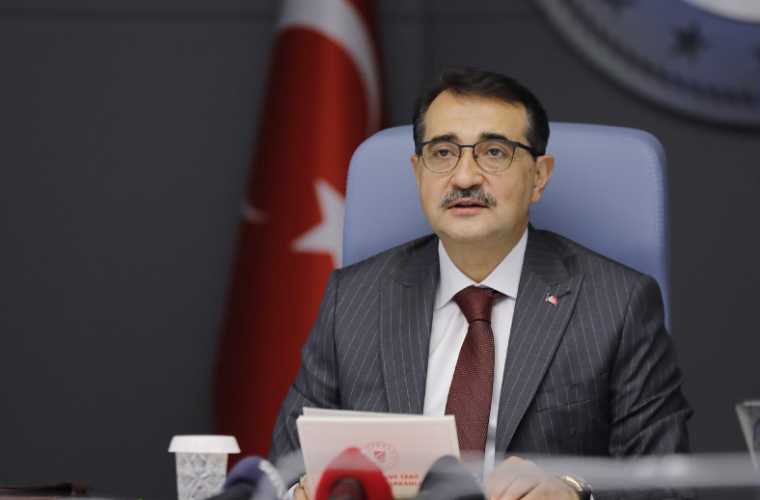2020 turning point for renewables in Turkey: En. min.
2020 has been a turning point for renewable energy's development in Turkey, according to Energy and Natural Resources Minister Fatih Donmez on Monday.

Speaking at the webinar on "IICEC Turkey Energy Outlook 2020: Turkey Energy Summit Special Launch", Donmez said that, Turkey has taken important steps for a future where renewable energy and energy efficiency thanks to Renewable Energy Resource Zones (YEKA) tenders and license-free production.
"We increased the share of renewable energy in our total installed capacity to 60%. The share of power production from renewable energy reached 45 to 50%. Despite that 2020 was not a very good year for the world, it has been a turning point for us in renewable energy," the minister said.
In April this year, power production from local and renewable sources has seen the levels of 80%, Donmez stressed, adding that these numbers mean records on a monthly basis since 2000.
"The share of local resources in power production continuously stand at the levels of 50% on a monthly basis in the last 23 months, since December 2018," Donmez said and added that Turkey now ranks 15th in the world and 5th in Europe in terms of capacity increase in renewables.
"The installed capacity in renewables added in 2020 is more than 17 EU countries' renewables capacity," Donmez said.
A considerable amount of capacity increase in solar and wind power is projected for Turkey as is the case globally, however technology will be key in this increase which will pave the way for new opportunities in these fields in the future, according to Donmez.
Akkuyu NPP works ongoing as planned
While Turkey's investments in clean energy resources are ongoing, the importance of base load energy plants for Turkey will not decrease, the minister said.
"In Akkuyu, the operations are ongoing as planned. The license for the construction of the third unit of Turkey's Akkuyu Nuclear Power Plant (NPP) is given and hopefully the first reactor is planned to be operational in 2023, while the remaining three will be operational every other years," he declared.
An intergovernmental agreement was signed between Turkey and Russia in May 2010 for Akkuyu NPP, first nuclear plant of Turkey that will have four VVER-1200 power reactors with a total installed capacity of 4,800 megawatts.
Turkey aims to become an energy hub
Donmez also underlined Turkey's efforts in developing its natural gas infrastructure and market, which will be boosted thanks to the gas discoveries in the Black Sea.
"Local gas strengthens Turkey's hand in the contracts that will be renewed in the coming period. Our approach to this topic is crystal clear: We will transform Turkey into an energy hub where the pricing is done, the market development is being shaped, where the buyer and seller meet in a free market which has a developed energy infrastructure," he asserted.
Meanwhile, the minister also declared Turkey's plans to finalize the works for recharging infrastructure of the country's first indigenous all-electric vehicle.
"Hopefully, we will finish the necessary infrastructure for charging before the TOGG's first production," he asserted.
In June 2018, five industrial giants: the Anadolu Group, BMC, Kok Group, Turkcell, and Zorlu Holding as well as an umbrella organization, the Union of Chambers and Commodity Exchanges of Turkey, joined hands to create Turkey’s Automobile Joint Venture Group (TOGG) which will produce Turkey's first domestically manufactured electric vehicle.
The factory, once completed in 18 months, will have the capacity to produce 175,000 vehicles per year.



